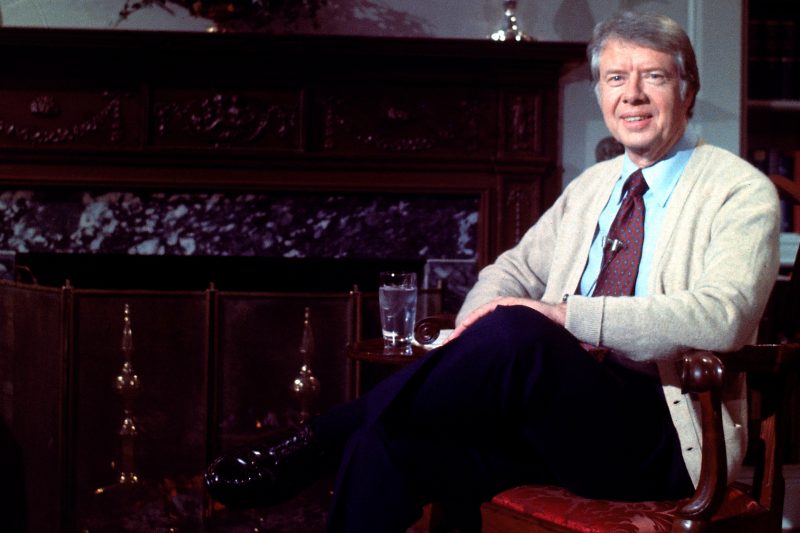In a now-iconic move that would spark years of Republican backlash and debate, former President Jimmy Carter decided to take a simple yet significant step towards promoting energy conservation by wearing a sweater in a televised address to the nation in 1977. The decision to don a sweater may have seemed like a minor wardrobe choice at first glance, but its repercussions would be felt for years to come.
Carter, who had made energy conservation a key focus of his presidency, used the platform of his speech to encourage Americans to lower their thermostats and conserve energy in the wake of an oil crisis. By appearing in a casual, non-presidential attire such as a sweater, Carter aimed to emphasize the need for individual responsibility and collective action in addressing the energy challenges facing the nation.
However, what seemed like a harmless and perhaps endearing gesture to some, quickly became a point of contention and criticism for many Republicans and conservative commentators. The act of wearing a sweater was perceived by some as a symbolic display of government overreach and interference in personal freedom. Critics argued that Carter’s call for energy conservation was an overstep of federal authority and an imposition on the individual liberties of Americans.
The sweater incident came to symbolize the larger ideological divide between Democrats and Republicans on the role of government in addressing societal challenges. For Democrats like Carter, promoting energy conservation and environmental stewardship were seen as essential responsibilities of government to ensure the well-being of current and future generations. On the other hand, Republicans viewed Carter’s actions as an intrusion into personal choice and a restriction on free-market principles.
The backlash against Carter’s sweater-wearing moment highlighted the deep-seated political divisions in the country and set the stage for ongoing debates on energy policy and environmental regulations. The incident also underscored the power of symbolic gestures in politics and how seemingly innocuous actions can become lightning rods for larger ideological battles.
In hindsight, Carter’s decision to wear a sweater may have been a small gesture, but its impact reverberated far beyond the confines of that televised address. It serves as a reminder of the complex relationship between personal choices, government intervention, and political ideologies in shaping national discourse and policy decisions. Ultimately, the sweater incident remains a potent symbol of the enduring debates over energy, environment, and the role of government in American society.

